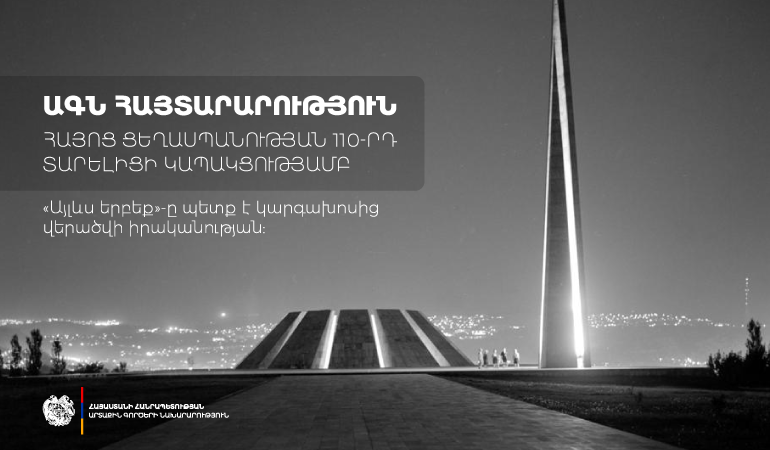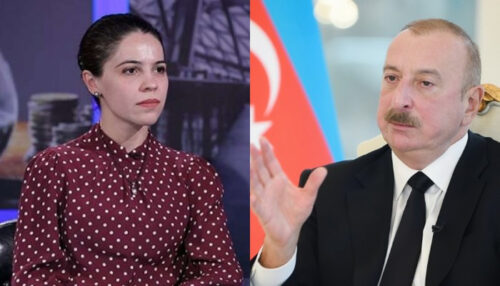
Armenian Foreign Ministry: Armenia remains actively engaged in initiatives aimed at the identification and early warning for such crimes, as well as prompt response, prevention and elimination of atrocities
In the final years of the Ottoman Empire, a significant part of the Armenian people, including children, women and the elderly, were annihilated solely based on their national identity. Their property was expropriated, and a substantial part of the millennia-old rich historical and cultural heritage was destroyed.
It was the understanding of the imperative to prevent atrocities such as the Armenian Genocide that also led to the need to legally define the crime of Genocide, which was manifested by the adoption of the 1948 United Nations Convention on the Prevention and Punishment of the Crime of Genocide. However, the Mets Yeghern sadly not only did not remain the last crime against humanity of the 20th century. In the 21st century we continue to witness new mass atrocities fueled by hatred, racial and ethnic intolerance.
The Republic of Armenia remains actively engaged in initiatives aimed at the identification and early warning for such crimes, as well as prompt response, prevention and elimination of atrocities. As a result of Armenia’s efforts, in 2015, the United Nations designated December 9 as the International Day of Commemoration and Dignity of the Victims of the Crime of Genocide and of the Prevention of this Crime. In continuation of the resolutions adopted in previous years, in April 2024, the UN Human Rights Council, at its 55th session adopted by consensus the resolution on the “Prevention of Genocide” presented by Armenia. All these efforts are aimed at transforming “Never again” from a promise into reality.
Today, the Republic of Armenia remembers the past and looks into the future, aiming to create an environment for future generations, free of discrimination and violence, and rooted in the values of tolerance, respect, protection of human rights and peace.



